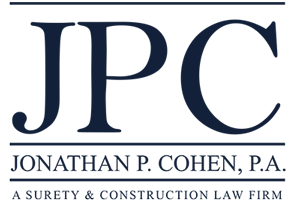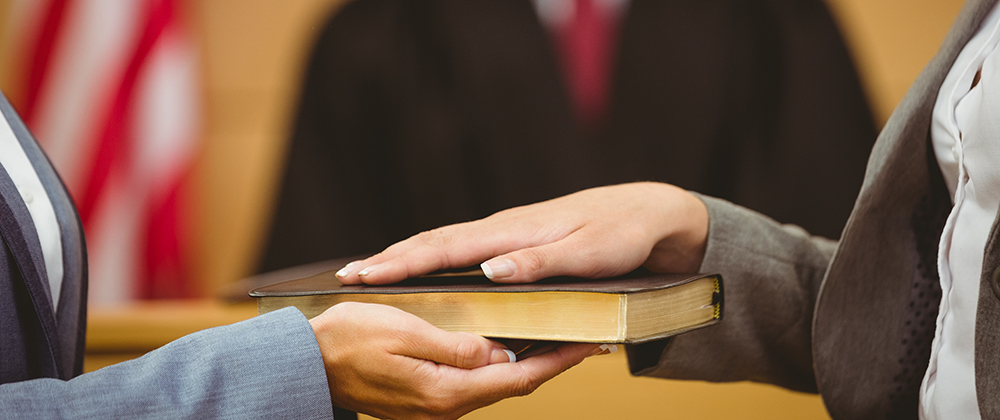The information provided in this article does not, and is not intended to, constitute legal advice.
The content in this article is available for general informational purposes only.
Introduction
Expert opinion testimony is often the cornerstone of many construction lawsuit disputes. It therefore goes without saying that every surety or construction law attorney who has litigated in a Florida state court – whether representing the party making the construction claim or defending it – has had to deal with some aspect of the almost century old debate concerning which is the proper standard for admitting expert opinion testimony at trial. The two competing legal doctrines, commonly referred to as the “Frye[1]” standard and the “Daubert[2]” standard, examine the reliability and admissibility of opinion testimony that one party seeks to introduce into evidence during the trial. In this context, key to the admissibility issue is the role of the trial judge.
The History of Frye and Daubert
The Frye standard, which stems from a 1923 criminal case involving the exclusion of a polygraph test result, states that scientific evidence is only admissible if it is “generally accepted” in the scientific community or particular field in which it belongs. The Frye test does not apply to all expert opinion testimony, but only “new or novel scientific evidence.” If the proffered scientific evidence is not new or novel then the opinion testimony will be admitted for the jury’s consideration.
Although Florida’s statutory framework never codified the Frye “general acceptance” analysis, the Florida courts consistently applied it when evaluating the admissibility of an expert’s opinion. All such testimony was admitted into evidence for the jury’s consideration, so long as the expert testified that any opinions based on new methods or novel techniques were “generally accepted” principles in the expert’s field of practice. The analysis was not applicable to “pure opinion” testimony, as that testimony was based on the expert’s own knowledge, training, and experience (and therefore admissible).
In 1975, when the Federal Rules of Evidence were promulgated, a different standard emerged for expert opinion testimony. Generally speaking, Rule 702 of the Federal Evidence Code provides that a witness who is qualified as an expert by his or her knowledge, skill, experience, training, or education may testify in the form of an opinion if the expert’s special knowledge will help the trier of fact to understand the evidence or determine a fact in issue. The Federal Rules did not overturn Frye and its progeny, but they also did not embrace and codify the principle of “general acceptance” within the expert’s scientific industry or field. This gray area opened up a Pandora’s Box, which further fueled the debate.
The Daubert standard comes from the 1993 landmark products liability case, Daubert v. Merrell Dow Pharmaceuticals. In Daubert, the U.S. Supreme Court declared that the admissibility of expert testimony under the Frye test was inconsistent with Rule 702 in the Federal Evidence Code, and dismissed 70 years of Frye’s “general acceptance” inquiry for determining admissibility of scientific expert testimony in federal court. The Court held that moving forward, the new analysis (known as the Daubert standard) required the judge to assume a “gatekeeping role” and make a threshold determination that “any and all scientific evidence admitted is not only relevant, but reliable.” The focus was not to be on the opinion, but rather the reliability of the methodology used by the expert to form his or her opinion.
In effect, this screening process required the trial judge to be an “amateur scientist,” who in all likelihood lacked the educational background and scientific literacy to effectively fulfill the role of gatekeeper, an admonition that Chief Justice William Rehnquist noted in his dissent in Daubert.[3] For the most part, these concerns have largely gone unnoticed. In later years the Supreme Court expanded the scope of its Daubert decision and applied it to any qualified expert witness testimony in federal court.[4]
To summarize the competing facets of the two standards, a Frye determination only applies to “new or novel” scientific evidence (such as the results of a lie detector test in 1923), whereas Daubert applies to all types of expert opinions, not just those opinions determined to be new or scientifically novel. By way of specific examples, non-scientific expert opinions that could face a reliability challenge under Daubert include engineering, mathematics, forensic accounting, statistical extrapolation, and qualitative sampling methods used to quantify building code violations in construction defect cases.[5]
More significantly, under Frye the scientific community, and not the trial judge, has the responsibility or role of “gatekeeper” in determining acceptability, reliability, and admissibility issues. As long as the proffer states that the scientific community finds a particular method or theory is generally acceptable, the evidence is admitted under Frye and it is then up to the jury to determine the credibility of the expert’s opinion (which the jury may accept or reject). By comparison, in Daubert, the trial judge makes the initial assessment in determining admissibility, after considering a non-exhaustive list of factors, but is essentially relying on his or her own scientific savvy and understanding (or lack thereof) to control the gate.
The Legislature’s 2013 Daubert Amendment (Procedure vs. Substance)
A further wrinkle to the debate came in 2013 when the Florida Legislature amended the Florida Evidence Code. The new rules of evidence[6] mandated that all Florida courts adhere to the federal standard (or Daubert standard) before admitting expert evidence at trial, presumably making Florida a Daubert state. At that time the vast majority of states followed the Daubert standard.
In 2017, the issue came to a head when the Florida Supreme Court issued its “rules” opinion, declining to adopt the Legislature’s 2013 amendments to the Florida Evidence Code, which implemented the Daubert standard.[7] In doing so, the Court held that the changes to the Evidence Code were “procedural” in nature, not substantive, and as matters of procedure were exclusively within the judiciary’s rulemaking authority, it appeared the Legislature had overstepped its authority, giving rise to “grave constitutional concerns.”[8] As a result, the Court once again held that Frye was the appropriate standard for evaluating expert opinion testimony in Florida state courts.
In late 2018, the Florida Supreme Court accepted discretionary review jurisdiction to again consider the constitutionality of the Daubert Amendment in DeLisle v. Crane Co., et al.[9] In DeLisle, a personal injury case involving plaintiff’s exposure to asbestos fibers in the workplace, the issue below was whether the trial court had properly exercised its gatekeeping function when, after holding the required pre-trial Daubert hearings, it still admitted disputed expert causation opinion testimony during the trial, which ultimately resulted in an $8 million verdict. On appeal, the Fourth District Court reviewed the admission of the expert testimony (under Daubert), found the trial court failed to properly exercise its gatekeeping duties, and reversed and remanded for a new trial.
The Supreme Court quashed the lower court’s reversal and reiterated its ruling from 2017, stating in no uncertain terms that (1) the Florida Legislature had “exceeded its authority when it sought to adopt Daubert and cease the application of Frye to expert testimony”; (2) “90.702, Florida Statutes, as amended in 2013, is procedural, not substantive”; (3) Frye, not Daubert is the appropriate test for Florida courts to determine the reliability of expert testimony before admitting it in evidence; and (4) medical causation is neither new or novel, so the trial court’s acceptance of the competing experts testimony was proper.
Earlier this year, the issue was once again pushed to the forefront of controversy when the Florida Supreme Court, in a stunning reversal of its 2017 rule-making opinion,[10] on its own authority without any case before it, ruled that effective immediately, Daubert, not Frye, will be the governing standard for the admissibility of expert opinion testimony. In receding from its prior 2017 “rules” decision, the court stated that the earlier “grave constitutional concerns” expressed by those who favored Frye and opposed Daubert “appear unfounded.”[11]
Conclusion
As a practical matter, it is not significant which standard the trial court applies in determining admissibility of expert opinion testimony. In either case, under both standards the burden is on the party offering the expert’s opinion to convince the trial judge that the proffered opinion testimony will be helpful to the jury in determining the facts in dispute. To the extent that the evidence is trustworthy and has integrity, it should be easy for a seasoned surety or Fort Lauderdale construction litigation attorney to frame the issue in the case and tailor the proffer of opinion testimony to reflect its inherent reliability. Moreover, given the nature of an expert’s testimony in surety, construction defect, and related structural damage cases, where there are rarely, if ever, new or novel opinions, the ultimate outcome of the Frye versus Daubert debate will have no real consequence on the surety or construction law trial attorney practicing in state court.
Although it is easy to get lost in the scientific and technical permutations outlined in the Daubert and Frye opinions, including the “new and novel” aspects, when you boil it all down to its essence, the rules of evidence and the theory behind admitting opinion testimony is always going to be whether the opinion helps the jury understand the evidence or determine a fact in issue. This concept is central under both Daubert and Frye.
In conclusion, and in borrowing an observation from the Bard of Avon, for the astute construction law practitioner, the Supreme Court’s recent decision and reversion from Frye back to Daubert, is “much ado about nothing.”
[1] Frye v. United States, 293 F. 1013 (D.C. Cir 1923)
[2]Daubert v. Merrell Dow Pharmaceuticals, Inc. 509 U.S. 579 (1993)
[3] Daubert v. Merrell Dow Pharmaceuticals, Inc. 509 U.S. at 600-601.
[4] See, Kumho Tire Co. v. Carmichael, 526 U.S. 137 (1999) (applying the Daubert standard to non-scientists, holding that there is no relevant distinction between experts who rely on scientific concepts and those who rely on skill or years of experience-based observations)
[5] See, D.R. Horton, Inc. – Jacksonville v. Heron’s Landing Condo Ass’n of Jacksonville, 44 Fla. L. Weekly D109 (Fla. 1st DCA Dec. 27, 2018)
[6] The Florida Legislature amended F.S. §90.702 (Testimony by experts) and §90.704 (Basis of opinion testimony by experts)
[7] In re Amendments to the Florida Evidence Code, 210 So. 3d 1231 (Fla. 2017)
[8] Id. at 1239.
[9] DeLisle v. Crane Co., et al., 258 So. 3d 1221 (Fla. 2018)
[10] In re Amendments to the Florida Evidence Code, No. SC19-107, May23, 2019.
[11] Id. at p. 4

